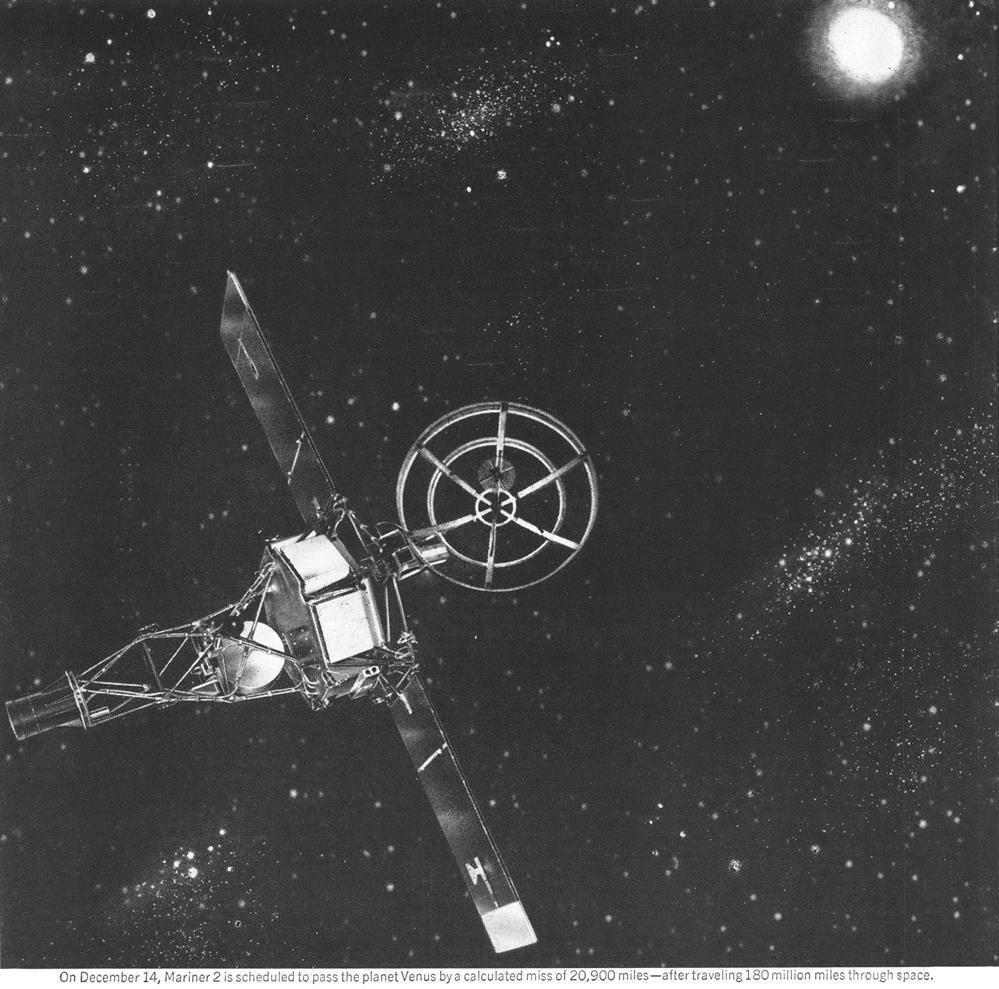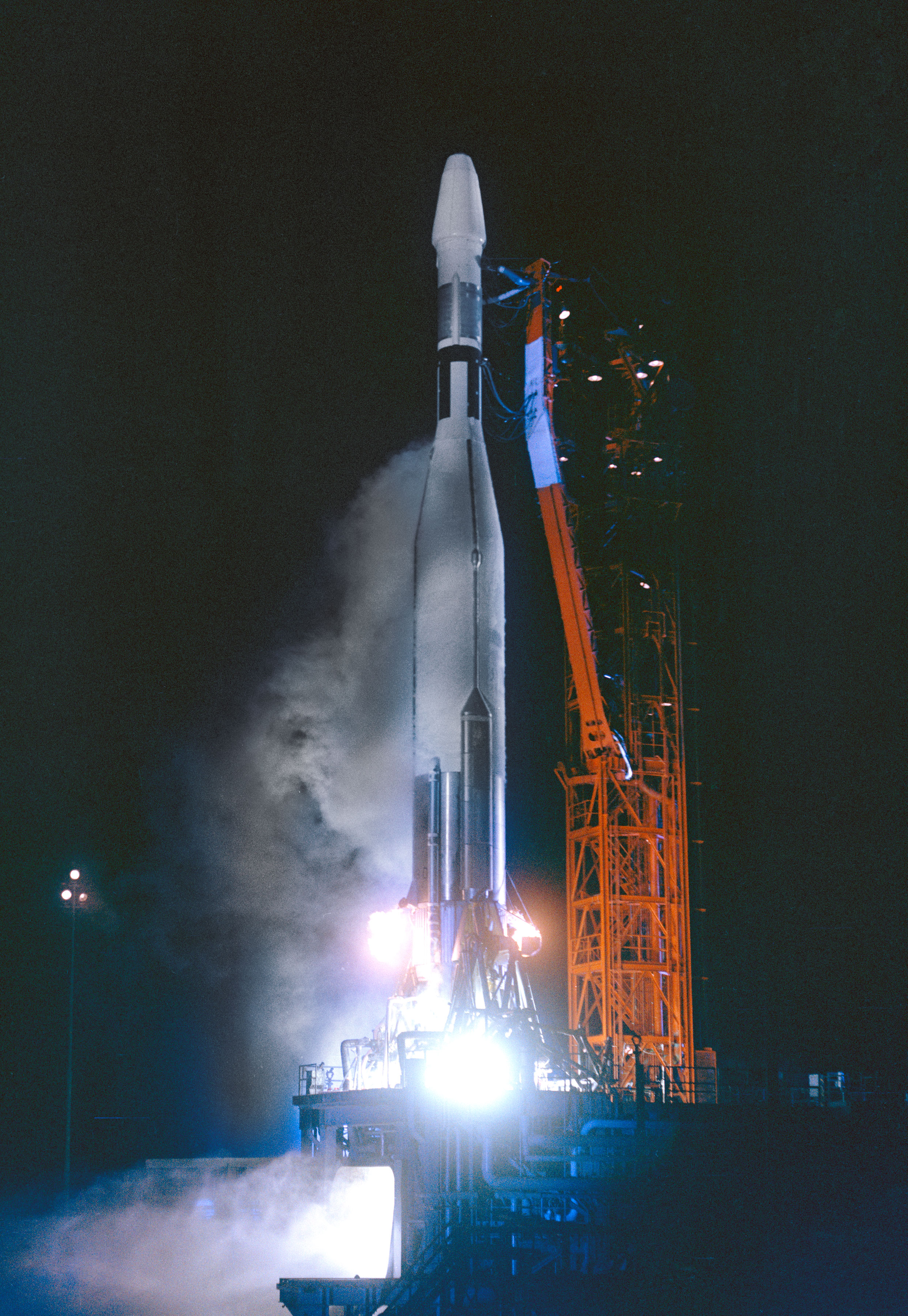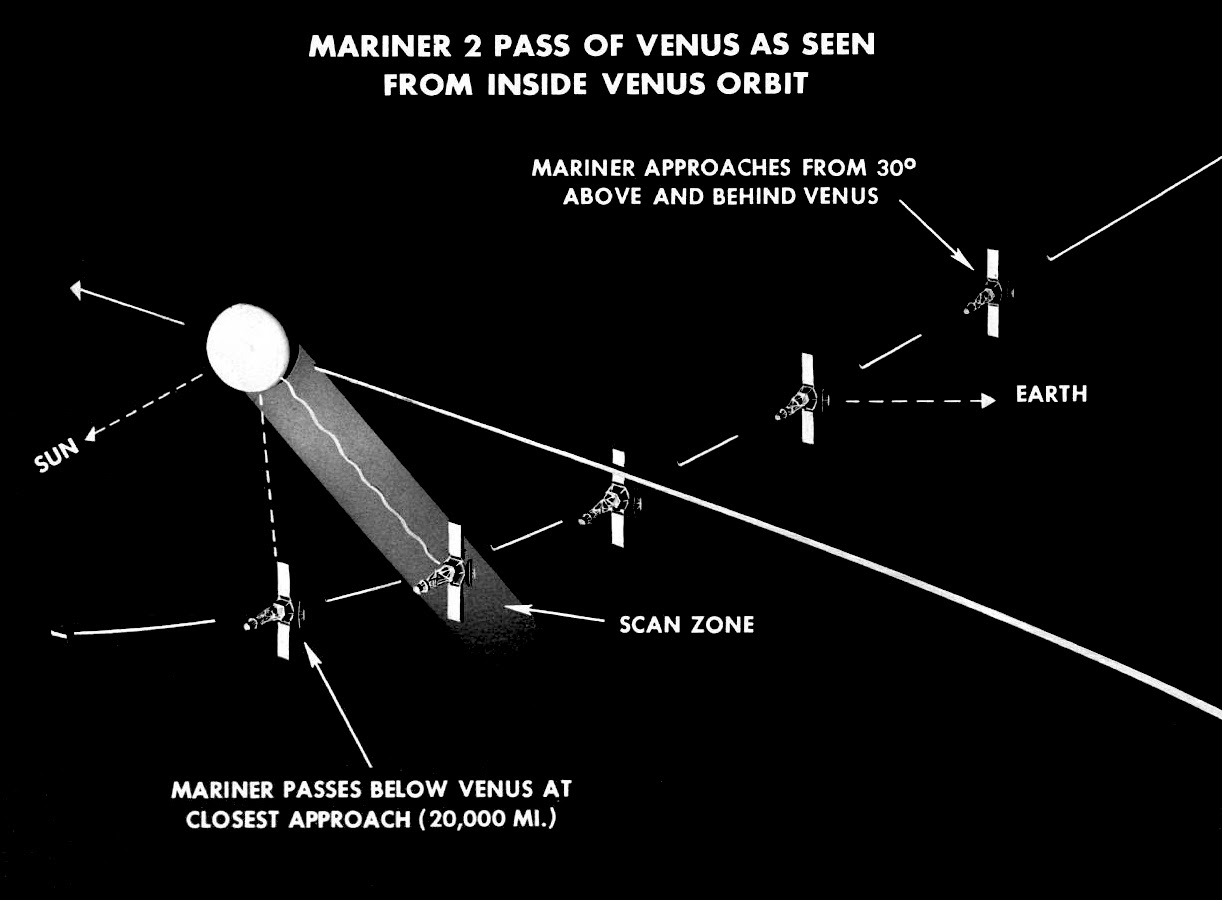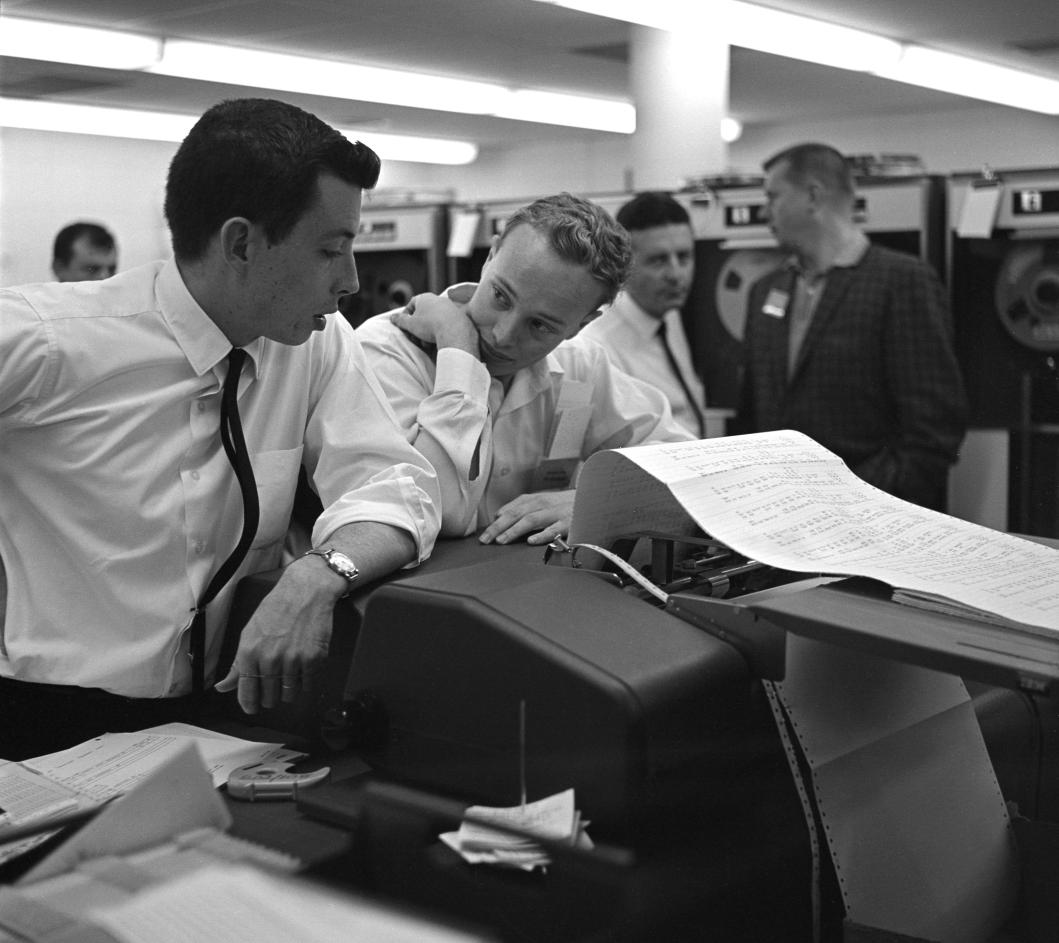[if you’re new to the Journey, read this to see what we’re all about!]

by Gideon Marcus
The Space Race has given us a lot of firsts to report on in the last five years. Today marks perhaps the most significant: for the first time, a spacecraft is reporting back to Earth on another world. Mariner 2, launched on August 27, has traveled 182 million miles to fly by the second planet out from the sun, Venus.

It has been a perilous trip the entire way — even before the spacecraft ever left the ground! Firstly, the mission almost didn't leave the drawing board. The original Mariner probe was a robust and heavy craft with a huge panoply of experiments. But the beefy Atlas-Centaur booster wasn't going to be ready in time for the next favorable orbital alignment of Earth and Venus, such occurring every 19 months. Unless NASA wanted to wait until 1964…and risk being beat by the Russians, an alternative had to be found.

Luckily, the Ranger series of moon probes, half the size of the original Mariner and designed to fit on the smaller Atlas-Agena, was available. Two new Rangers were adapted into "Mariner Rs" posthaste to meet the Summer 1962 deadline. By July, Mariner 1 was on the launchpad. This is where the second hurdle was met.
On July 22, Mariner 1's Atlas soared into the sky. 93 seconds into the flight, the guidance antenna on board the rocket stopped hearing commands from ground control. This was not immediately fatal; after all, the Atlas has its own computer with a program designed to keep the booster on course even without external direction. Unfortunately, something was wrong with the program, too — probably a misprogrammed equation led the Atlas to make increasingly jerky maneuvers on its yaw axis. Five minutes into the mission, ground control had to send a destruct order, blowing the rocket up in midflight.
A tense month went by. Would the Russians beat us to the punch? We'd gotten a reprieve the year before, when the Soviet probe Venera 1 sailed silently past the Planet of Love, its systems having died in flight. On August 25, there were reports of a Soviet launch but no subsequent announcement of a new Venus mission. Was it just a false alarm? Or had our adversaries had troubles of their own?

Then Mariner 2 successfully launched, on August 27. It made it through a mid-course correction on September 4 that put it on a course with destiny. Now it just had to survive the journey, longer than any that had been managed before. Given the track record of the Rangers (0 for 5), the odds weren't good.
In fact, Mariner almost didn't make it. On Halloween, one of Mariner's solar panels shorted out. It came back on a week later only to short out for good on November 15. Still, the crippled ship soldiered on closer to the sun, its remaining panel absorbing sufficient energy to power all instruments. Mariner 2 set a record en route, continuing to send data past the point that Pioneer 5's transmission faded away two years ago. As the craft approached Venus, the temperature inside was close to boiling.

Nevertheless, little Mariner pulled through! Passing just over 20,000 miles over the surface of Venus, Mariner 2 is sending back information, all experiments functioning. As we speak, JPL engineers are poring through the data. In just a few short weeks, we will finally have answers to some big questions: Is Venus really a roiling inferno? How long is a Venusian day? What is the nature of Venus' magnetic field?
Humanity has waited 100,000 years to learn the answers. By January, we should have them.



Thanks for sharing this good news, and the suspenseful story which led to it. Looking forward to January's news column on Venus (It's all so sf – think where we'll be in thirty years!)
Living on Venus, perhaps. I guess it will depend on what the data show… Stay tuned, and thanks for listening!
We will be living on giant floating cities atop the seltzer oceans of Venus! Or if they are made of oil like some astronomers predict we will all become rich oil barons and then prices will remain low forever!
Even if Venus is just made of lush jungles everywhere due to all the rain from all that constant cloud cover, we can still go there to hunt the dinosaurs and other exotic creatures undoubtedly roaming that planet.
Safaris will make a fortune, as will zoos for the few animals we bring back to be gawked at by the citizenry for their edification and entertainment.
Soon you can boast that your garden not only has the usual tomatoes, zucchini, and other Earth plants, but can now include the native Venusian flora which I am sure will adapt quickly to the terrestrial soil once our astronautic expeditions bring back samples. Venusian grapefruit the size of… really big grapefruits!
Some astronomer wags have said that Venus may actually be nothing but a vast wasteland desert way too hot for any life forms, but decades of science fiction about the second world from the Sun beg to differ on that, and we know that SF writers always stick to the facts, just like Jules Verne.
> solar panels shorted out.
Most of the space probes have had solar cells on them for power; we hear enough about them that we tend to forget that the first practical solar cells were only made in 1954, less than ten years ago.
Solar cells are deceptively simple; the photoelectric effect was discovered in the 1830s, the first working cell was made half a century later, and decades after that Albert Einstein's research on the subject led to his Nobel Prize. Modern transistors, like you find in those annoying portable radios teenagers disturb adults with, are an offshoot of solar cell research.
We had atomic power plants before we had practical solar cells, so it's not entirely unexpected that there might be a few problems, assuming the "short" wasn't caused by some piece of space debris. So far we know nothing at all about what might be floating around out there that our ground-based telescopes can't see.
One of the sidebars to this Mariner 2 report states the Mariner 2 photographed Venus. This incorrect. Mariner 2 carried NO camera. Venus was not photographed by any spacecraft until Mariner 10 flew past Venus on its way to explore Mercury a decade after the Mariner 2 mission.
You are correct. I kept it accurate except for that one entry on Discoverer. Call it poetic license!
(and I am impressed with your soothsaying capabilities)